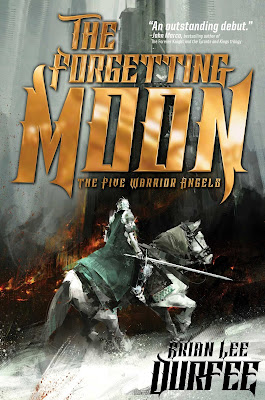The Man Who Ate His Boots
 The Man Who Ate His Boots: The Tragic History of the Search for the Northwest Passage
The Man Who Ate His Boots: The Tragic History of the Search for the Northwest PassageBy Anthony Brandt
Alfred A. Knopf, 28.95
Reviewed by Russell A. Potter
Do we really need another recounting of the quest for the Northwest Passage? After all, the task has been assayed a number of times in recent years, by the likes of James Delgado, Ann Savours, and Martin Sandler; just last year, it was given a magisterial overview by Glyn Williams. It was with this doubt in my mind that, somewhat wearily, I opened Anthony Brandt's The Man Who Ate His Boots, and found that the answer, after all, was a resounding "Yes." Brandt has certainly done his homework, and yet his writing is anything but a term paper; by turns lively, mischievous, and dryly ironic, his prose is an adventure in itself, and deeply satisfying fare for either the neophyte or the traveler who thinks he has been there before. Even Sir John Franklin -- who, as the title implies, provides the dramatic continuity of this book -- seems to step freshly forth from the two-dimensional portraits which were so often made of him.
Part of this is due to Brandt's deft touch with the mood of our times, one in which we both crave heroes and (not to put too fine a point on it) devour them. Remarkably, he manages to satisfy both urges, giving us at once the mythic, Arthurian Franklin with his powers of persistence and kindness to mosquitoes, as well as the overweight bumbler afflicted with an especially bad case of the cultural myopia endemic to his times. He sees these aspects not as contradictory, but complementary; with a Keatsian sense of negative capability, he keeps them both in his eye. Brandt also has a keen nose for just the sort of refulgent details -- those diamonds in the coal-heap of history -- which illuminate the narrative from within. Thus we hear of Franklin's avoidance of Leicester Square, lest someone recognize him from his portrait in the Panorama there; of Sir John Ross's insistence that sunlight altered the motion of the magnetic needle; and of the pseudonymous "Voyageur" who (quite alone among the debates of the day) suggested that the "Esquimaux" rather than the Admiralty offered the truest account of Franklin's fate.
There are no new revelations here. Mr. Brandt freely states that he has drawn entirely from printed sources, and not delved into any handwritten journals or correspondence. He comes, not as would a historian, to sift every particular, but rather to scry out the larger lay of the land, and bring it, along with all its intangibles, back to the armchair explorer. It's a task he undertakes with particular verve and style, and it has rarely been so well done.




Comments
Post a Comment